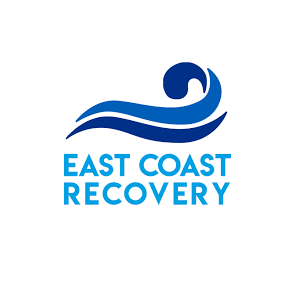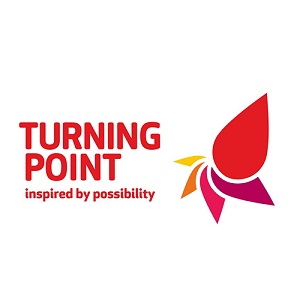Drug & Alcohol Rehab in Lowestoft

How Does Rehab Work?
Rehab is a process that assists individuals in working towards restoring balance and well-being. Rehab focuses on addressing the patient holistically with individualised therapy aimed at resolving addictive behaviours. With guidance from a professional therapist or counsellor, coping strategies are taught and individuals can access much-needed support. Strategies deal with relapse prevention and clients can be assigned to an extended inpatient programme or move to an outpatient programme. With inpatient rehab (residential rehab), individuals will reside at the rehab centre for the duration of treatment. Outpatient services are an alternative option in which clients will attend daily/weekly sessions for therapy but will not attend a full-time programme. There are both free and paid outpatient services available within the UK.
What Happens During Residential Rehab?
When you are ready to enter rehab for drug and/or alcohol addiction, it is a courageous step towards recovery. Although achieving balance and breaking the cycle of dependence takes some work, it can be achieved. To help you make an informed decision concerning treatment, we look at the options available and what to expect during rehab.
Rehab occurs in phases. It starts with a medical assessment. Individuals must be professionally assessed to help staff understand the nature of your addiction, its history and comorbid disorders (such as anxiety or depression). The information obtained from the assessment is used to create a tailored therapy programme for you. Because every person is different, a personalised treatment plan will help provide a more tailored programme that meets your needs and requirements.
Assessments are followed by detox. Individuals who enter detox will begin withdrawing from substances including alcohol, as the body returns to a normal state of function. This timeline will differ depending on the type of drug used and the length of dependency. Only when the body no longer contains the substance will individuals participate in a treatment plan.
Rehab includes meeting with a counsellor for private & group sessions, participation in skill-building activities as with an inpatient or residential rehab, or group meetings that are common with outpatient 12 Step programmes. We explore the various phases of rehab in greater detail.
1. Assessment

For any person entering rehabilitation, an assessment must be performed. It is a normal procedure meant to put your mind at ease as the specialist looks for specific behaviours, previous mental health conditions, and general health. In an inpatient programme, it is expected to have an admissions screening performed by telephone before booking you into treatment. Telephone assessments allow the treatment centre to determine the right programme for your needs. It will also provide staff with important information to customise support services during detox.
Should you require the assistance of a medical professional to manage addiction, seek a medical assessment prior to treatment commencing. Assessments are an important part of choosing the right therapy and whether inpatient or outpatient programmes are most suitable for your healthcare requirements.
2. Detox

Detox will be completed before therapy commences. It is often performed in a private clinic where individuals can receive round-the-clock care to reduce withdrawal symptoms.
It is recommended to have a managed medical detox because the experienced staff is readily available to help you through withdrawal. As the substance is removed, you may begin to experience withdrawal symptoms. Without professional help, there is a higher risk of relapsing. Detoxification is followed by a fully tailored therapeutic programme. You can attend inpatient or outpatient therapy that is lead by trained addiction therapists and a support team.
3. Therapy

Therapy involves skill-building, coping strategies, and the exploration of the reasons for addiction. It can be provided in an inpatient or an outpatient programme, each offering its benefit and potential drawbacks.
Step by Step Process for Residential Rehab
To understand your medical and mental health history.
Arrange a suitable date to begin your journey to recovery.
Begin the managed withdrawal process from substances including alcohol.
To understand the root cause of addiction and how to overcome it.
Aftercare is provided to help manage the risk of relapse.
To help heal the wounds that addictive behaviour has caused others.
Find your Nearest Rehab Centre near Lowestoft
The nearest rehab centre is East Coast Recovery.
Address: East Coast Recovery, Recovery Centre, 231 Whapload Rd, Lowestoft NR32 1UL
Call 0333 4444 432 to discuss your alcohol or drug rehab requirements and any other questions you may have about the process of residential rehab.
Outpatient Addiction Services in Lowestoft
To make an informed decision on which form of treatment will guide you in your journey to overcoming addiction, it is important to look at the pros and cons of outpatient and residential rehabilitation. Outpatient rehab can be very useful as it offers a flexible and cost-effective alternative to inpatient treatment.
When you are accepted into an outpatient service, you will be expected to meet with a therapist, support counsellor, or group leader once or twice every week. Rather than stay within a residential setting, you can continue to attend work and care for your family while you receive addiction treatment for addiction.
If you have made a decision that outpatient treatment is an option you want to follow, the next step is to find a suitable programme provided by a reputable company or charity.
The Benefits of Outpatient Services
Private Outpatient services focus on individual support that is customised to suit the needs of every patient. – Outpatient treatment is a more flexible arrangement that will help many individuals regardless of financial or family commitments. It involves the attendance of weekly sessions with a qualified counsellor. – It is a more cost-effective treatment programme compared to inpatient services.
The Challenges of Outpatient Services
While outpatient services play an important role in accessible addiction treatment, it is also linked with a higher relapse potential. While free outpatient services do exist through the NHS or UK-based charities, waiting times are to be expected and treatment tends to be more generic.

How Much Does Rehab Services Cost in Lowestoft?
Alcohol and drug addiction treatment within a residential setting can cost between £1500 – £4000 a week. Residential rehab is one of the costlier types of treatment for drug and alcohol dependency. For free and cost-effective services, charity organisations and government funded services offer programmes for all individuals seeking recovery.
One example of a free addiction treatment service is that of Turning Point. Turning Point offers a number of structured support programmes to help with both alcohol and drug addictions. Their website provides a self-referral service. Apart from charities such as Turning Point, you may consider private therapy or one of the many free support groups such as Narcotics Anonymous (NA), Cocaine Anonymous (CA), and Alcoholics Anonymous.
Support Groups in Lowestoft

Lowestoft Online
London Road Baptist Church, Kirkley Park Rd NR33 0LQ

Lowestoft Online: Friday
Trinity Methodist Church, High St NR32 1HU

Lowestoft Online: Monday
Trinity Methodist Church, High St NR32 1HU
The Pros and Cons of Seeking Treatment in Your Local Area
Pros
1. You are familiar with the area which may provide a layer of comfort/safety.
2. Loved ones can easily travel to visit or are close by.
3. You may save on the costs of travelling long distances for treatment, or free addiction services may only be offered in your area of residency.
Cons
1. A local environment means access to drug dealers or other triggers. This is more of a concern if you choose outpatient programmes.
2. Failing to consider locations outside your area could equate to a missed opportunities for more valuable and rewarding programmes.
3. Addiction treatment programmes nearby do not always offer the best standard of treatment.
The CQC website will provide information and ratings on a service in the event you are unsure regarding a particular service.


